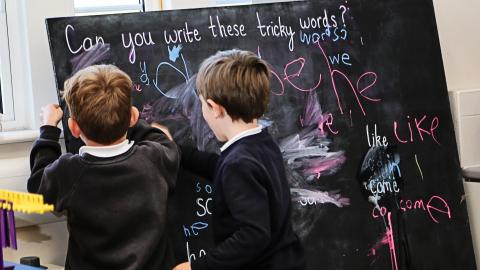At Threshfield School we are guided by the National Curriculum for History (2014). The National Curriculum for history aims to ensure that all pupils:
- know and understand the history of these islands as a coherent, chronological narrative, from the earliest times to the present day: how people’s lives have shaped this nation and how Britain has influenced and been influenced by the wider world
- know and understand significant aspects of the history of the wider world: the nature of ancient civilisations; the expansion and dissolution of empires; characteristic features of past non-European societies; achievements and follies of mankind
- gain and deploy a historically grounded understanding of abstract terms such as ‘empire’, ‘civilisation’, ‘parliament’ and ‘peasantry’
- understand historical concepts such as continuity and change, cause and consequence, similarity, difference and significance, and use them to make connections, draw contrasts, analyse trends, frame historically-valid questions and create their own structured accounts, including written narratives and analyses
- understand the methods of historical enquiry, including how evidence is used rigorously to make historical claims, and discern how and why contrasting arguments and interpretations of the past have been constructed
The Intent of our History Curriculum
Our intent is that our teaching of History will help pupils gain a coherent knowledge and understanding of Britain’s past and that of the wider world. We aim for it to inspire pupils’ curiosity about the past and to know more about the past. We aim to enable children to ask perceptive questions, think critically, weigh evidence, sift arguments, and develop perspective and judgement. Through the teaching of History we endeavour to teach children to understand the complexity of people’s lives, the process of change, the diversity of societies and relationships between different groups, as well as their own identity and the challenges of their time.
The Implementation of our History Curriculum
History Lessons focus on developing Knowledge and Knowhow, Historical skills and understanding how to work as Historians. Children have real life experiences and learn about History in an active and creative way, making connections with prior historical learning and other subject areas such as Geography and Science.
Our mixed age classes mean that children learn about certain historical aspects in different year groups at different times. While we can’t affect this, we do ensure that children are challenged to work at the age related level and are assessed against the objectives for their year groups.
The Impact of our History Curriculum
Outcomes in topic and literacy books, evidence a broad and balanced history curriculum and demonstrate the children’s acquisition of identified key knowledge. Children also record what they have learned comparative to their starting points at the end of every topic.
Emphasis is placed on analytical thinking and questioning which helps pupils gain a coherent knowledge and understanding of Britain’s past and that of the wider world and are curious to know more about the past. Through this study pupils learn to ask perceptive questions, think critically, weigh evidence, sift arguments, and develop perspective and judgement. To use heritage projects to provide further relevant and contextual learning, engaging members of the community in children’s learning and providing positive role models from the community for children to learn from.

